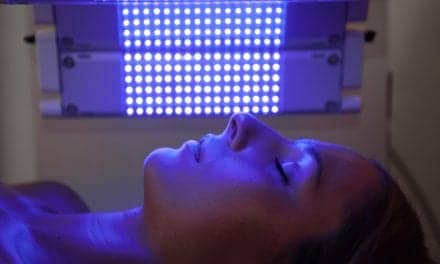The legal ambiguity around minors’ ability to consent without parental involvement to oral contraceptive pills (OCPs) for acne suggests that dermatologists err on the side of caution, according to a Viewpoint article in JAMA Dermatology.
Author Arielle Nagler, M.D., assistant professor at the Ronald O. Perelman School of Medicine at New York University, said
The article’s impetus came from a data “blind spot” in the treatment of acne, particularly regarding use of hormonal therapies — four of which are FDA-approved for acne treatment.
“Combined oral contraceptives (COCs) provide an effective and usually very safe long-term therapeutic option. But we don’t have a lot of data on who prescribes for our patients, particularly the COCs. That got me thinking about some of the challenges dermatologists may face when prescribing COCs for acne,” said Arielle Nagler, M.D., of NYU School of Medicine. Dr. Nagler authored the article with NYU colleagues Carolyn P. Neuhaus, Ph.D., and Seth J. Orlow, M.D., Ph.D.
Even when COCs are clearly indicated for acne, she said, dermatologists may hesitate to prescribe them, instead referring patients to primary care physicians or gynecologists. Reasons for dermatologists’ reluctance include the fact that many are uncomfortable discussing sexual health or are unwilling to spend time on such discussions, although OCP prescriptions for younger females necessitate doing so.
CONSENT CONUNDRUM
No less formidable an obstacle is the unclear nature of consent laws governing minors with respect to OCPs. By statute or default, all states require parental consent for treatment of minors except in matters related to reproductive and mental health. While 26 states and the District of Columbia allow minors to consent to reproductive health treatments without parental consent or notification, the issue grows muddy regarding OCPs prescribed for acne.
“On the one hand,” the authors wrote, “the exception is carved out for matters related to reproductive health, and prescribing OCPs primarily for acne does not constitute a treatment related to reproductive health.” But then teens may wish to take OCPs for multiple reasons, including both acne treatment and pregnancy prevention, the authors stated.
Dr. Nagler said that the spirit of minor consent laws is to promote public health by allowing teens to make reproductive health decisions without parental involvement. Studies have shown that adolescents will more likely seek birth-control and STD treatments when parents will not be consulted or notified. “Arguably,” Nagler et al. wrote, “the treatment of acne also achieves the goal of improving public health, so allowing minors to consent to OCPs for acne is consistent with the spirit of the law.”
But to comply with the letter of minor consent law, Dr. Nagler and colleagues recommend that dermatologists still seek parental consent when prescribing OCPs for acne management. Because the exception to parental consent applies only to reproductive health decisions, they reasoned, “If a parent explicitly objects to OCP prescriptions, it would be prudent for the dermatologist to respect parental rejection of treatment. Legal precedent typically respects parental authority” in such matters.
Because some dermatologists use and may even prescribe OCPs for acne treatment, the authors add that to mitigate physician discomfort and support adolescent decision-making, dermatologists should be trained in counseling patients on OCP use.
Read the full article at dermatologytimes.modernmedicine.com




